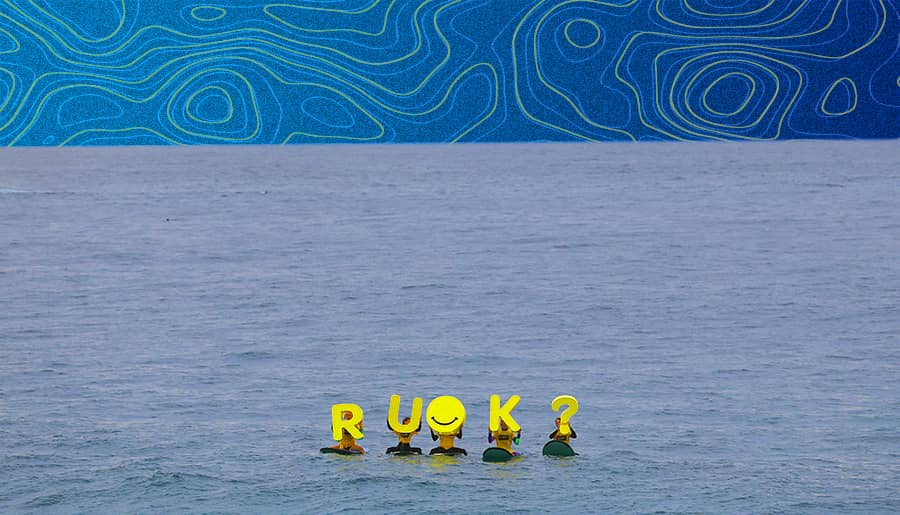To be honest, I’m not doing A+ at the moment. On August 19, I got one of those unexpected phone calls that we all get. It was from my mum. And surprise, she told me that my aunt has stage four brain cancer. She said that everyone had just found out, that my aunt only has 18 months left. Since then, everyone’s implied that this number has dropped.
I am currently unable to process this situation. I feel it in my muscles when I sit down, but my head just doesn’t get it. I love my aunt very much. I don’t want to go to her funeral in less than 18 months.
So, if on R U OK? Day, someone asks me this question as a joke, it will snap me in half like a wafer. Because, unfortunately, some people do treat R U OK? Day like it’s a meme. This has happened to too many people I know.
How Not to Ask Someone If They’re Okay
Lily* is a great friend of mine. Last year, one of Lily’s coworkers Susan* asked if she was okay in a jokey manner. “Susan was like, ‘Whoo! It’s R U OK Day!’” explained Lily. Susan then asked Lily if she was “okaaaay” in a patronising manner.
This conduct hurt Lily because she had just come out of a rough patch and was on some new meds. “It is much better to connect with someone using actual empathy,” stated Lily. “To actually care.”
It’s worth noting that nobody forced Susan to behave in this manner. R U OK? Day isn’t a mandatory conversation. If you’re going to engage with this program, please do so in a sincere manner.
Related: How to Help Your Mates When They Don’t Want Mental Health Help
Related: My Dudes, There’s No Shame in Taking Meds or Going to Therapy for Your Mental Health
How to Really Ask Someone If They’re Okay
The R U OK? site has some pretty rad advice for starting one of these conversations with someone. They outlined that you should be relaxed, friendly, and concerned at the start of your chat. Don’t criticise the other person or become confrontational. Be specific and genuine when describing why you’re concerned about their wellbeing, if this is the case, and when you tell them that you care about them.
Oh, and it probs goes without saying, don’t start a convo like this as a meme.
Once You’ve Asked the Question, What Should You?
The Latch talked with Emma Kate Hale, a Counselling Lecturer at the Australian College of Applied Professions, about what you should do after asking someone if they’re okay. Hale explained that if they say they’re struggling, you could start by keeping your responses simple.
“You could say, ‘I’m sorry you’re not okay right now. Would you like to talk about it?’” said Hale. “This sort of response can offer emotional validation, which means you accept their emotional experience. It tells them you believe them and are willing to listen to them and offer support if you can.”
Another thing you can do, if it’s appropriate, is ask them if they have professional support. “If they are connected with a support group or mental health professional, you might ask if they’d like to get in touch with their professional support group or person and offer to accompany them,” Hale stated.
“If they are not connected with anyone, ask if you can help them contact a GP as a starting point, or ask if they would like to speak to someone from a helpline to help support their mental wellbeing.”
The last bit of advice Hale offered was to check up on them after your chat. “Following up on the conversation with the other person can also be really helpful, as they may be feeling emotional after opening up with you.”
* This person is known to The Latch but has chosen to remain anonymous for privacy reasons.
If you or anyone you know is struggling and needs support, call Kids Helpline on 1800 55 1800 or Lifeline on 13 11 14, both of which provide trained counsellors you can talk with 24/7. You can also speak with someone confidentially at Headspace by calling 1800 650 890 or chat online here. If you are in immediate danger, call 000.
Read more stories from The Latch and subscribe to our email newsletter.

